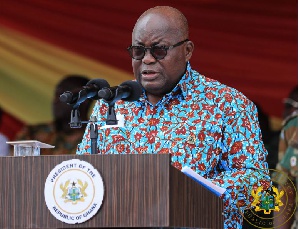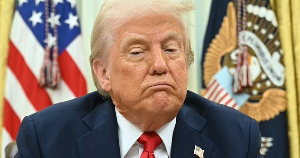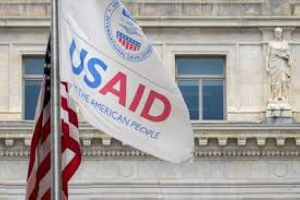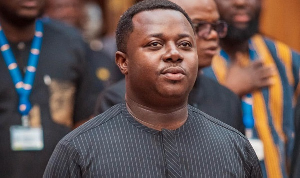Visionary leaders are noted for their positivism, idealized influence, inspirational motivation, intellectual stimulation and individual consideration (Nemanich and Keller, 2007).
Some experts however explain that idealised influence depicts visionary leaders as most respectful, reliable and meritorious. And more so idealised influence explains leaders unparalleled ability in setting vision and implementing it to impact on their subordinates (Bass et al., 2003).
On the other hand, inspirational motivation explains how visionary leaders consistently raise team spirit and encourage their subordinates to be creative (Bass et al., 2003).
After observing Nana Akufo-Addo over a long period of time, I have come to a firm conclusion that he indeed possesses the attributes of a visionary leader.
If you may recall, during the 2016 electioneering campaign, the then presidential candidate of NPP, Nana Akufo-Addo, insisted: “I am promising you that within 18 months of a new government of the NPP, under my leadership, the face of our country, Ghana, is going to change”.
As a matter of fact, the preceding statement underscores Nana Addo’s positivism, commitment and enthusiasm.
Verily, a true leader wants nothing more than to make people independent, as leaders in their own rights. Indeed, a visionary leader reflects our own light back to us.
And more so a true leader would time and time again come up with pragmatic ideas with a view to transforming the lives of his/her subordinates.
If you would recollect, prior to the 2008, 2012 and 2016 general elections, the then presidential candidate, Nana Akufo-Addo, made the Free ‘SHS’ his principal campaign message. As it was expected, the opposition NDC communicators scoffed and labelled him an inveterate liar.
Astonishingly, however, some unsuspecting Ghanaians, including my maternal uncle, Oliver bought into the NDC’s manipulating gimmicks and rejected the offer of the Free SHS on two previous elections (2008 and 2012 respectively).
But lo and behold, discerning Ghanaians saw the light and gave the Free SHS provider, Akufo-Addo the mandate on 7th December 2016.
And true to his word, President Akufo-Addo has honoured his promise of the free SHS to the delight of the vast majority of Ghanaians. Apparently, it commenced in2017/2018 academic year.
In fact, the implementation of the Free SHS is the judicious way of distributing the national resources. It really epitomises a true leadership.
Somehow, leadership and management scholars observe that visionary leaders act as role models, motivate, provide meaning, optimism, enthusiasm , strategic thinking and stimulate the intelligence of their subordinates(Bass, 1985).
Interestingly, Akufo-Addo insisted during the 2016 electioneering campaign: “We are going to get out of stagnation and backwardness, and move our country onto the path of progress and prosperity. We can do it. We, the Ghanaian people, have the capacity to change the circumstances of our lives”.
The preceding statement really emphasises Nana Addo’s intellectual stimulation and positivism. Apparently, intellectual stimulation explains how true leaders promote their subordinates innovative and creative skills by encouraging them to solve problems entirely in new ways (Bass et al., 2003).
More importantly, the Akuffo-Addo’s government is tackling the erstwhile Mahama’s government economic mess head-on. Ghana's economic growth, which had slowed from 4.0% in 2014 to 3.7% in 2015, was predicted to recover to 8.7% in 2017, following consolidation of macroeconomic stability and implementation of measures to resolve the crippling power crisis (ADB).
Despite the extent of the economic mess left by the previous NDC government, the Akufo-Addo’s government is prudently taking steps to stabilising the economy.
Take, for example, during the presentation of the NPP government’s first mid-year budget review at the end of July2017, the Finance Minister, Ofori-Atta, forecasted favourable economic outlook against the backdrop of an improving macroeconomic performance and falling inflation.
“There were some positive takeaways; the government comfortably met the H1 budget deficit target of 3.5%, and now expects the budget shortfall to be smaller than expected for 2017 as a whole.”
It is also worth mentioning that agricultural growth was around 7.4 per cent in 2012, but the erstwhile NDC government nauseatingly reversed it to around 2.5 per cent as of October 2016 (GSS 2016).
But as I write, the Ministry of Agriculture, under the able leadership of Mr Akoto-Owusu, has rolled out a flagship programme known as ‘planting for food and jobs’, which is expected to give us bumper harvests, and, more importantly boosts the agricultural growth.
It is also worthy of mention that the outgone NDC government could not hold on to the late mills “unprecedented” single digit inflation as they somehow managed to move the inflation to double digits (15.8 as of October 2016).
However, as I write, the Akuffo-Addo’s government has dramatically reversed the inflation rate to a single digit (GSS 2018).
More importantly, the Akufo-Addo’s government has efficiently raised the economic growth within a short space of time. Ghana’s economy grew provisionally by 8.5 percent in 2017 compared to 3.7 percent in 2016 (Ghana Statistical Service, 2018).
Interestingly, the Industry sector recorded the highest growth rate of 16.7 percent, followed by Agriculture 8.4 percent and the Services 4.3 percent.
Services share of GDP decreased from 56.8 percent in 2016 to 56.2 percent in 2017. The sector's growth rate also decreased from 5.7 percent in 2016 to 4.3 percent in 2017.
However, two of the subsectors in the services sector recorded double-digit growth rates, including Information and Communication 13.2 percent and Health and Social Work 14.4 percent.
The Industry sector, the highest growing sector with a GDP share of 25.5 percent, had its growth rate increasing from -0.5 percent in 2016 to 16.7 percent in 2017.
The Mining and Quarrying subsector recorded the highest growth of 46.7 percent in 2017.
The Agriculture sector expanded from a growth rate of 3.0 percent in 2016 to 8.4 percent in 2017. Its share of GDP, however, declined from 18.7 percent in 2016 to 18.3 percent in 2017. Crops remain the largest activity with a share of 14.2 percent of GDP.
The Non-Oil annual GDP growth rate decreased from 5.0 percent in 2016 to 4.9 percent in 2017. The 2017 Non-oil GDP for industry recorded a growth rate of 0.4 percent, compared with 4.9 percent in 2016. Growth in the fourth quarter of 2017 reached 8.1 percent compared to 9.7 percent in the third quarter (GNA, 2018).
If you may remember, during the 2016 electioneering campaign, Nana Akufo-Addo asserted: “This ‘new Ghana will be a Ghana with opportunities for all, and where everybody is taken care off. We will have a society that is caring and compassionate and expresses solidarity. Nobody is going to be left behind. We are all going to march together, hands linked together, to that great future that beckons us, here in Ghana.”
In fact, back then, I had no qualms about Nana Akufo-Addo’s claim of bringing everyone on board to build the nation.
To his credit, Nana Akufo-Addo brought all the people who contested him in the NPP’s flagbearership race together. Yes, he resolved all pre-election issues and worked collaboratively towards the 2016 election victory.
And, following his election victory, President Akufo-Addo graciously assembled a working team consisting of people from all walks of life, including a 2016 presidential candidate from an opposition party.
This is indeed a leadership by example. In fact, Nana Akufo-Addo is ‘the Moses’ of our time.
Biblically, Moses was a visionary leader. We read in Exodus that he was a shepherd – he had a modest, humble and patient upbringing. Moses employed his humility, patience and tolerance when he had the opportunity to speak to God. He kept watch as thousands of sheep grazed the fields. Moses noticed that one sheep was missing and went off to look for it, finding it at a distant apart.
When the sheep had finished drinking, Moses lifted it onto his shoulders and carried it back to the flock. When Jehovah God saw this, he became aware that Moses was a man of reason, empathy and selfless devotion, a man truly worthy to lead His people; a man who would put his empathetic qualities at the disposal of the needs of his subordinates. After all, no one was keeping an eye on Moses; Moses could easily have thought to himself, “why be concerned with one sheep when there are thousands”?
Yes, we, (Ghanaians) took the right decision on 7th December 2016 by electing ‘the Moses’ of our time (Nana Akufo-Addo) to rescue us from the economic bondage of the ‘Pharaoh’ of our time (President John Dramani Mahama).
Opinions of Friday, 14 September 2018
Columnist: Kwaku Badu















